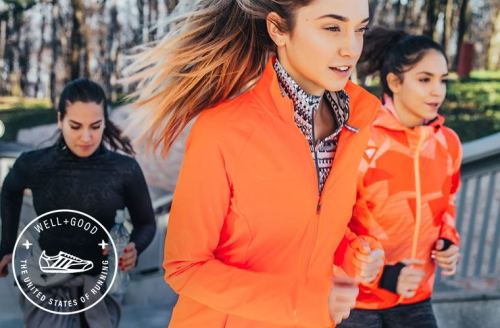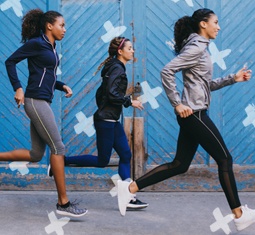Could this one diet change help improve your performance come race day?
Health pros discuss how drinking impacts athletes physically and emotionally, plus the best time to cut alcohol from your diet for optimal results on race day.

When Dorothy Beal started running seriously, the 35-year-old admits her lifestyle was hardly conducive to her new hobby: “I was definitely a party girl in college,” she says. “I drank too much. But once I became a runner, it was immediately clear I had to start cutting back. It made running harder than it already was—I just didn’t feel as good, and I experienced gastric distress.”
Blame it on the alcohol (or rather the runner’s high), but Beal quickly realized that the less she drank, the more she wanted to lace up her sneakers and put in miles—she’s now completed 33 marathons (she’ll compete in her 34th this Sunday in New York City) and created the popular blog Mile Posts to chronicle her wellness journey. Her new healthy habit came with two additional benefits: becoming faster and fitter.
Surprisingly, there’s relatively little research on the ways in which alcohol affects athletic performance. So to find out more on the science behind how going dry can impact your runs, I reached out to doctors, trainers, and nutrition experts.
Here’s what health pros say you need to know about drinking before a big race, and why you might want to save the celebratory beers until after the finish line.

It’s one toxic relationship worth breaking up with—at least while you’re training
Here’s the gist: “Cutting back on alcohol consumption can absolutely improve athletic performance,” says Jeffrey M. Egler, MD, a practicing physician at Parsley Health. “Alcohol is basically a toxin. Your body will have to expend energy, nutritional and elemental resources, and anti-oxidation capacity on detoxification rather than on more beneficial processes like muscle growth, healing, and energy production. Plus, it’s a depressant, which can negatively affect mood.”
“If your body is focused on detoxification, recovery time from training can be prolonged.”
If you’re prepping for a big race, Dr. Egler recommends ditching the alcohol when you’re 30 days out, while his colleague, Dr. Tiffany Lester, medical director for Parsley Health, says to consider going dry starting up to 3 months from your goal race. Why? “Our bodies break down alcohol into acetaldehyde, which is a highly reactive toxic compound,” she says. “This is often why we feel hungover, as our liver enzymes try to eliminate this toxin. If your body is focused on detoxification, recovery time from training can be prolonged.”
When you’re weighing the pinots and chardonnays—er, pros and cons—of removing booze from your training regimen, though, it’s also important to consider the emotional aspects and implications of your plan, says Kim Hoban, registered dietitian, certified personal trainer, and certified intuitive eating counselor. Her advice: “If you’re a moderate drinker and you enjoy a glass of wine or pre-race beer, I wouldn’t necessarily discourage you from imbibing during training or race season.” She does, however, recommend an 8-oz. chaser of H20 to every alcoholic drink and limiting your intake to one or two. In other words, do you, but don’t undo all the miles and hard work you’ve put in to ensure you cross that finish line feeling victorious.
While you training for your big race, try adding these speed workouts into your regimen and adopting some mental prep tips from veteran runners.
More from the United States of Running

Read the latest on Flipboard

Don't miss a single video on YouTube

More running tips from the pros
Sign up for the Well+Good SHOP Newsletter
Get exclusive deals on wellness, beauty, fitness, and food products that have been hand-picked by our editors.
Got it, you've been added to our email list.







